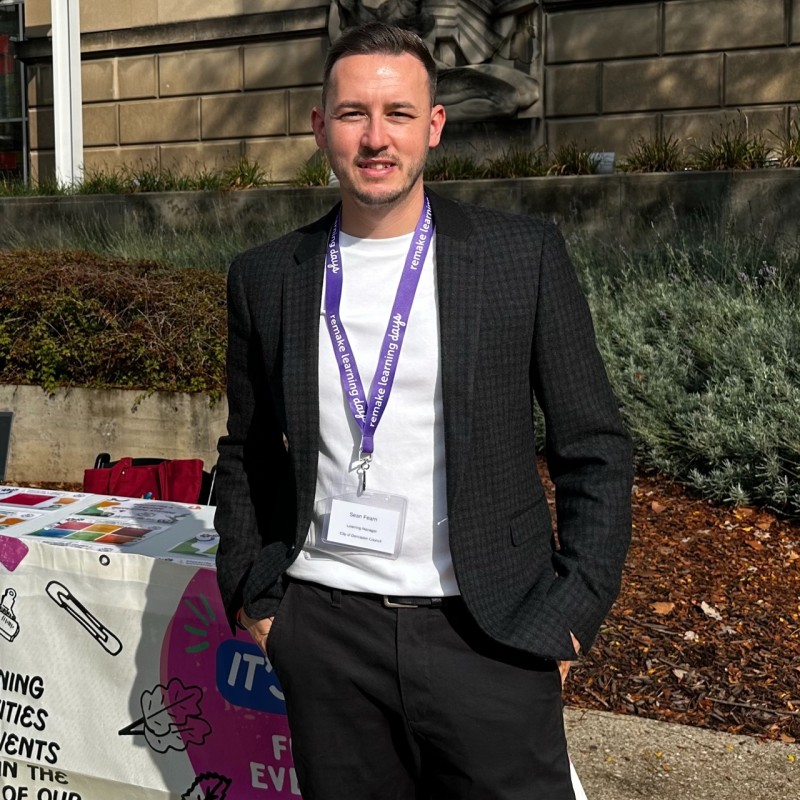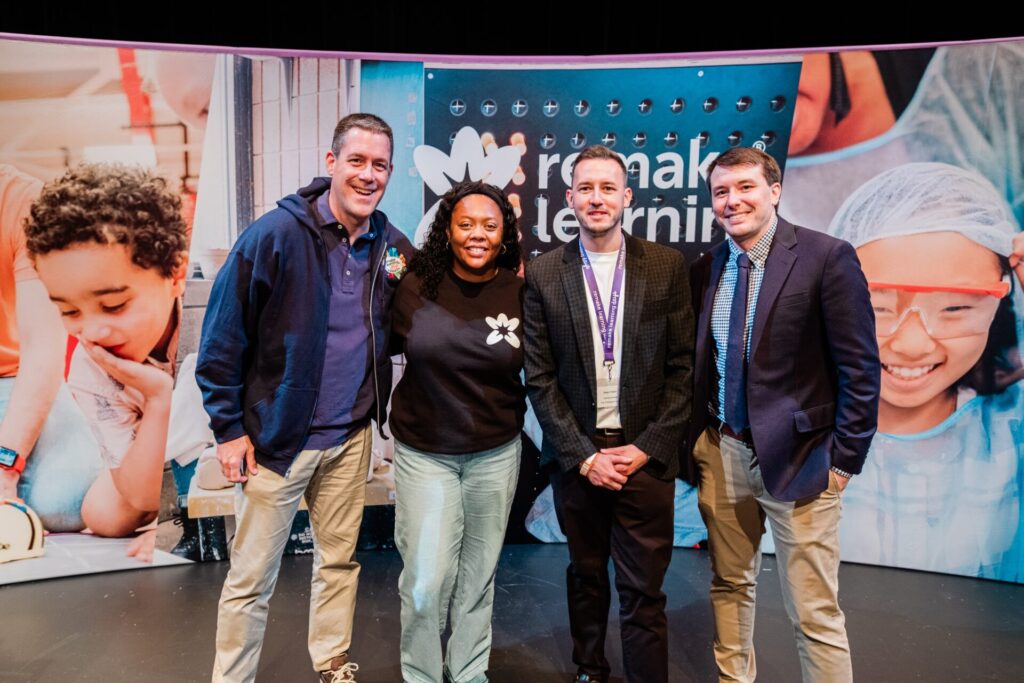When I first arrived in Pittsburgh, a taxi driver welcomed me to “The Big Small City.” At first, I didn’t understand what he meant, but it quickly became clear. Despite its size and industrial legacy, Pittsburgh operates like a close-knit community. Educators, technologists, artists, and civic leaders collaborate across sectors, forming a dynamic learning ecosystem that feels intimate and deeply interconnected. Everyone knew everyone.
Day 1: Roots and Innovation



We began at Pamela’s Diner, the birthplace of Remake Learning. In 2007, a group of educators met here and decided they needed more spaces to collaborate, thus, Remake Learning was born. It was a powerful reminder that big movements often start in small, informal settings.
A tour of the city followed, including a visit to Carnegie Mellon University’s Entertainment Technology Center (ETC). Students there are developing tools like vibrating shoes for people with Parkinson’s and immersive learning environments. The ETC team expressed interest in collaborating with Doncaster College, and I’ve since connected their director, John, with Ben Owen, Vice Principal at Doncaster College. They’ve already met and started discussions which is an exciting step toward international partnership.
Later, we visited Manchester Craftsmen’s Guild (MCG), a nationally recognised arts education centre offering ceramics, fashion, woodwork, and more. Their “Clay Ground” initiative shows how creative spaces can empower youth and transform communities. This is a model that could easily be replicated in Doncaster with our high impact education culture strategy.
Over dinner, Gregg and Tyler shared their admiration for Doncaster’s progress. Their key advice: amplify local stories. We must spotlight the organisations driving innovation in Doncaster, not just as a council, but as connectors and champions.
A key takeaway from Day 1 would be the power of storytelling and grassroots collaboration across the region.
Day 2: Schools as Hubs
At Avonworth Primary Center, I saw how strategic funding can reshape education. Through Moonshot Grants and “Parents as Allies,” parents co-teach and support student development. They also run the “Wisdom Corridor” project, and have invited Doncaster schools to create their own version, an exciting opportunity for cultural and educational exchange. The Middle school had an aviation-themed wing which integrates STEM with real-world applications. Really interesting to hear about how they are relating education to the larger agenda items across the city.
Next we visited Suburban General, a repurposed hospital, which now hosts informal medical learning and robotics like BotsIQ. It’s a shared space for schools and community groups. Interestingly, Sheffield University had visited the day before, I’m keen to follow up and explore collaboration.
Avalon School felt familiar to Doncaster in both age and demographic, with a maker space to its “Parents as Allies” programme. Crafting workshops become co-teaching moments, strengthening family engagement. This mirrors Doncaster’s AFCL work and could inspire deeper partnerships.
Later, I joined the Remake Learning Days Leads meeting and presented about Doncaster’s RLD festival. The response was overwhelmingly positive, our collaborative approach stood out. Presentations from Pennsylvania’s Department for Education outlined future priorities: enriching student experiences, supporting educators, and building workforce pathways. These align closely with Doncaster’s ambitions.
Takeaway from Day 2, Schools can be community hubs. Avonworth’s Wisdom Corridor and Avalon’s co-teaching model resonate with Doncaster’s AFCL and Moonshot funded work.
Day 3: Assembly and Action


The final day was the Remake Learning Annual Assembly, with over 300 educators, policymakers, and students. I was able to showcase on Doncaster’s work, which was met with enthusiasm. Schools like Shady Side Academy and Woodland Hills expressed interest in collaboration.
One standout idea was the “Freight to Plate” culinary education programme. They proposed a live-streamed cooking session using a recipe from Doncaster’s Food For Thought cookbook, a brilliant blend of cultural exchange and digital engagement. We’re exploring how to make this happen.
I also met with the Community College of Beaver County’s aviation programme, which integrates flight simulation and aerospace engineering. This could inspire similar initiatives in Doncaster, whilst we are in the middle of Re-opening our Doncaster Sheffield Airport!
Take away from day 3 would be that International collaboration is within reach. The aviation and culinary projects offer tangible next steps for Doncaster.
Final Reflections: What’s Next?
Pittsburgh’s learning ecosystem is vibrant, inclusive, and deeply collaborative. It reminded me that innovation doesn’t always require scale, it requires connection. The city’s approach to storytelling, community engagement, and cross-sector partnerships offers a blueprint for Doncaster.
As we move forward, here are some next steps:
- Strengthen storytelling: Amplify voices of local organisations and learners.
- Explore partnerships: Follow up with ETC, Wisdom Corridor, and Freight to Plate.
- Connect stakeholders: Facilitate introductions between Doncaster and Pittsburgh leaders.
- Align strategies: to inform Doncaster’s learning city roadmap and improve the learning ecosystem.
The relationship between Pittsburgh and Doncaster is still very early. With shared values and complementary strengths, we have the potential to build something truly transformative, two cities, learning together.
Authored by:

Sean Fearn
Learning Manager
City of Doncaster Council
